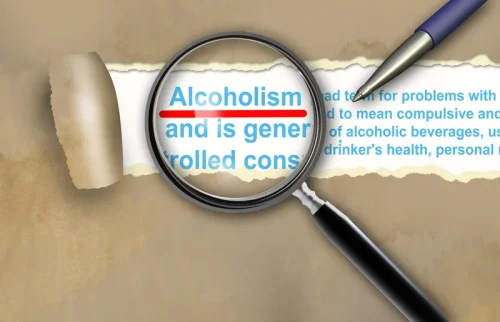
After a session of binge drinking or heavy alcohol use, these so-called “hangover shakes” can leave you feeling weak and wobbly for the entire day. Preventing alcoholic withdrawal symptoms necessarily involves preventing alcoholism itself. However, there are ways to avoid the more severe withdrawal symptoms.

Asking for a Friend: Are ‘Hangover Shakes’ Normal?
- Her wealth of experience coupled with her natural talent for connecting with people and a deep desire to make a difference in the world has made Angie the leader she is today.
- When you wake up, your brain becomes overwhelmed with activity, triggering tremors and shaking during a hangover.
- People who experience severe symptoms of alcohol withdrawal may also develop delirium tremens.
- Some individuals may develop a tremor similar to the one experienced by individuals with Parkinson’s disease.
The importance of medical attention cannot be exaggerated when it comes to alcoholic withdrawal. One of the priorities in treating this condition is to lower nervous system activity. A healthcare provider will treat this using drugs that reduce how active your CNS is. This can lead to short and long-term complications for your physical and mental health.

Blood sugar changes
It’s also possible that you’ll shaking alcohol experience hallucinations, meaning you’ll see or hear things that seem real to you, but that aren’t really there. They help lower activity in your CNS, which is the source of most of the dangerous problems with DTs. The most common sedatives are benzodiazepines, but other drug types are possible, too. In rare situations, people with very high CNS activity may need general anesthesia to fully sedate them and avoid the most dangerous symptoms of DTs. The central nervous system gets “excited,” leading to tremors until the alcohol leaves the system. Alcohol shakes aren’t a sign of weakness but a sign that could lead to health complications.
Treatment for shakes and alcoholism
She thrives on providing families a warm and friendly connection to their loved ones treatment process which in turn helps not only the families, but our clients. However, alcohol shakes are often the first sign that a more serious problem exists. As such, it’s important to take a step back and reflect when you notice alcohol tremor signs.
Duration of Symptoms
He has worked for Elevate Addiction Services for over 2 years, and is board-certified in family and addiction medicine. Currently, he is pursuing a fellowship in psychiatry and is affiliated with both UC Irvine and UC Davis. He is interested in General Medicine, Addiction Medicine, Mental Health, and End-of-Life Care (such as palliative and hospice care). She is also the the Co-Host of the popular Elevate Experience Podcast, a no-holds-barred look at addiction and the power of effective treatment. Endurance, objectivity, productivity, logistics, and time/people management. My goal is for everyone to enjoy coming to work, and for their days to be as productive as possible toward the end of helping people put their lives back together.

Alcohol shakes vs. delirium tremens
Mindful meditation is another great way to reduce your anxiety and help prevent cravings and future relapses. To learn how to find an inpatient detox center, read more from our Medical co-author. Tremors and other symptoms of alcohol withdrawal can occur as soon as six hours after someone last had a drink. That’s why some alcoholics wake up shaky in the morning and need a drink to feel steady.

The alcoholic can then lose control over certain muscle groups, primarily in the hands, while the body reintroduces the suppressed neurotransmitter. While this symptom often only lasts up to 5 days, those who have spent multiple years in extreme intoxication can expect their tremors and shakes to last as long as several weeks. Alcohol use disorder isn’t a condition that happens for just one reason. Family history, mental health conditions and many other factors can play a role.
- His work has appeared in publications including The Guardian, Euronews, and VICE UK.
- Alcohol tremors are involuntary shaking/trembling of one or more parts of the body.
- Healthcare professionals can provide the necessary support and resources to address alcohol dependency effectively and promote recovery.
- It’s used by medical professionals to assess your risk for alcohol dependence.
- The type of detox addiction treatment or level of intensity needed depends on the severity of alcohol use and other health factors.
- While alcohol shakes are fairly common, only 5-10% of heavy drinkers experience DTs.
- Christina has volunteered for many years with Flying Doctors, a humanitarian group that provides health services to underdeveloped areas in Mexico and Central America.
Leslie has been working with families of clients in the program for 13 years. She has strong communication skills, compassion for others, and a drive to provide the best services we can to each client and their family throughout their experience with Elevate. For the past 9 years, she additionally has been overseeing the detox area, health services, and office of family support. She has implemented a lot of new protocols for the operations of these areas to ensure the clients are receiving the highest quality of care that we are able to provide. She has a strong work ethic and it’s not unusual for her to be up at the facility at 2am or on the phone all night helping guide our staff on how to best manage whatever situations come up. If alcohol shakes have become a regular occurrence, you may find that your work, family time, and social life are affected—especially if other symptoms are involved.

It helps to keep busy with activities you find enjoyable and that promote health and well-being. Once a recovering alcoholic has completely detoxed, tremors will usually resolve. However, long-term alcohol abuse can cause brain, nerve, and liver damage, which may result in permanent tremors.
